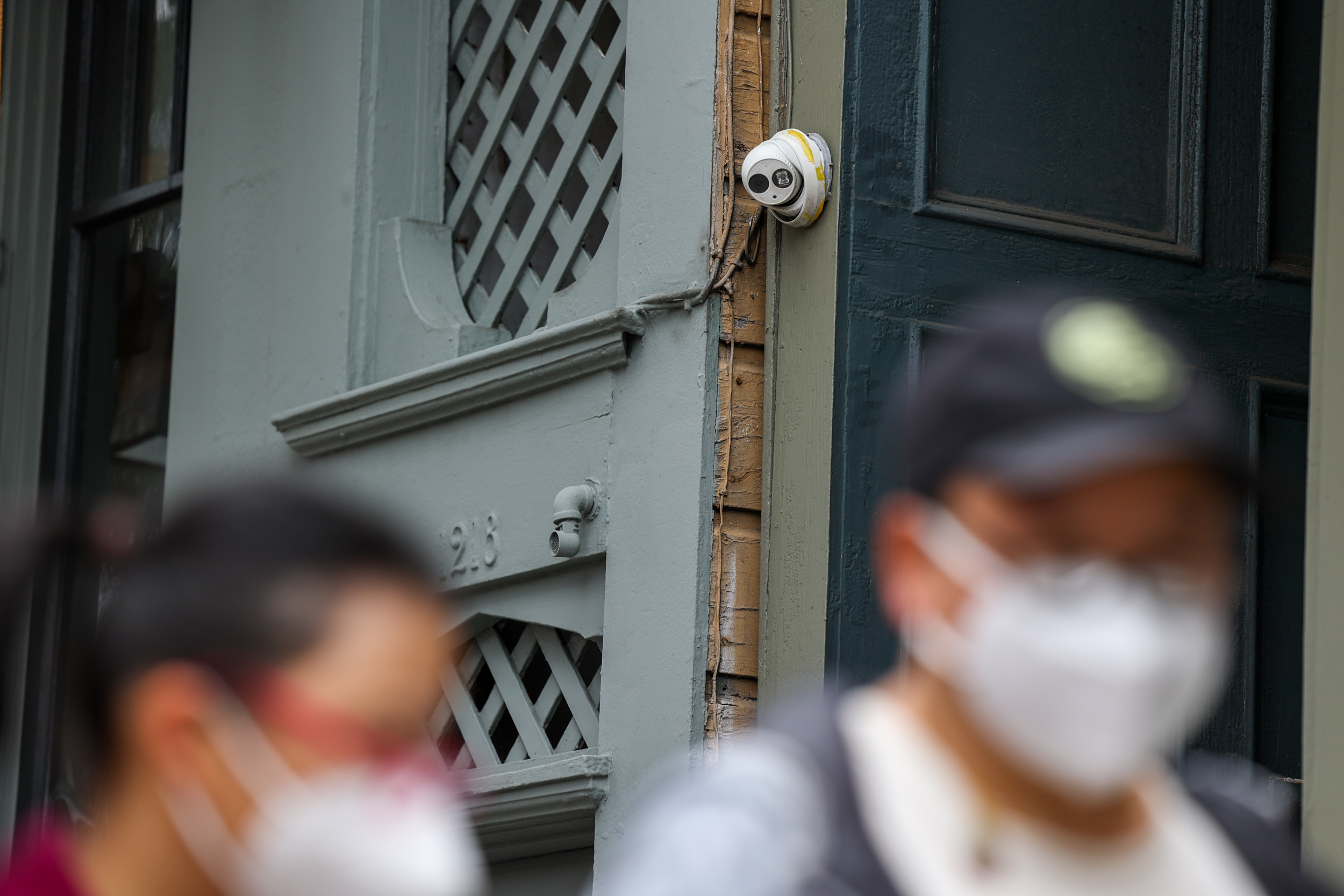Footage of attacks—including some high-profile incidents in San Francisco—helped raise awareness about a surge in reported violence and discrimination against people of Asian descent since the pandemic.
Now, as San Francisco mulls whether to expand police access to live security cameras, some local Asian American leaders are calling on the Board of Supervisors to ramp up surveillance in hopes of deterring crimes.
Lily Ho, who founded the Delta Chinatown Initiative, believes more cameras will make the neighborhood safer by preventing crime or offering visual proof when it happens.
“With anti-Asian hate plaguing our community, we rely on security cameras to act as a deterrence,” she said, “and to provide evidence to ensure justice can be served to victims of crime.”
Camera footage can provide important evidence when “victims and witnesses are too scared to testify,” Ho noted.
Ho’s nonprofit initiative has received funding to install cameras in the neighborhood—and dozens are already keeping watch over the busiest parts of Chinatown, including major commercial corridors and small alleyways.
“We continue to install more,” she added.
Monday’s Board of Supervisors meeting brought polarizing opinions on the proposal to grant the San Francisco Police Department access to live-monitor private security cameras. On one hand, opponents raised concerns about government overreach and erosion of privacy.
Asian Law Caucus, a civil rights advocacy nonprofit, called into the meeting and expressed concern about the cameras making “activists, immigrants, and communities of color” vulnerable to discrimination by law enforcement. They co-signed a letter with multiple groups strongly opposing the law.
However, proponents touted real-time camera surveillance as a way to prevent and solve crimes.
Multiple Cantonese speakers called into public comment to voice support for the legislation pitched by Mayor London Breed and endorsed by Brooke Jenkins, the district attorney she appointed to replace Chesa Boudin.
“Many of these crimes were not reported because of language barriers and the lack of surveillance cameras to document the assaults and even homicides,” said Marlene Tran, a longtime public safety activist in Visitacion Valley and a Stop Crime San Francisco board member.
Tran also criticized City Hall for not providing interpretation services for Cantonese speakers who dialed into the meeting to support the bill. A board clerk explained that no interpretation request was made beforehand.
Though Ho supports adding more cameras, she said she’s not fully on board with granting SFPD access to real-time monitoring. But she’s keeping an open mind, she said, and plans to discuss the matter with her team members after the law is settled.
On Tuesday, Supervisor Gordon Mar also highlighted the importance of the surveillance cameras by convening a press conference to announce more funding for the Ring Doorbell surveillance cameras for Sunset residents.
The program, which provides Ring cameras free of charge to Mar’s constituents, has been “by far the most popular new safety program that I’ve helped support,” he said.
Ring Doorbell has partnered with local nonprofits to help install the cameras for residents. Mar has allocated a $35,000 grant in this year’s budget from his own office’s addback to buy 120 Ring surveillance cameras for Sunset residents.
Mar also revealed his intent to support the mayor’s proposal of police live surveillance, saying it’s helpful to use technology tools to address crime, but asking SFPD to ensure that they would not “step over the line.”
